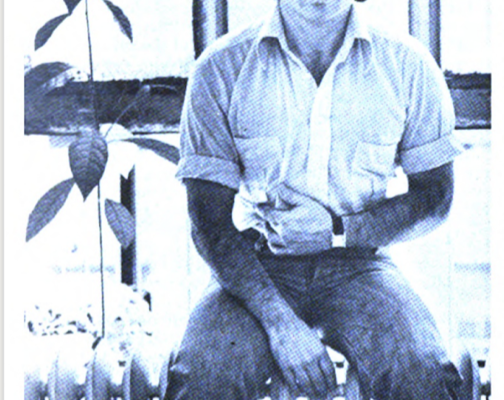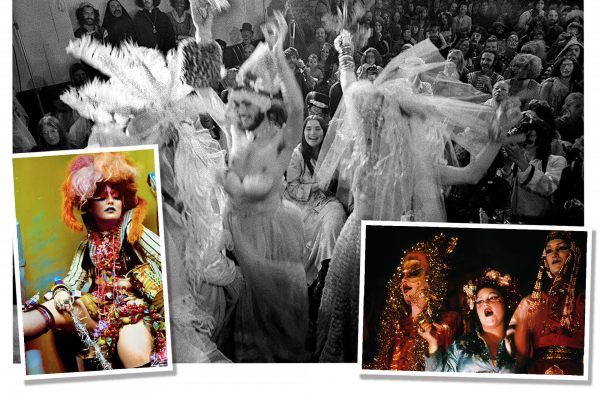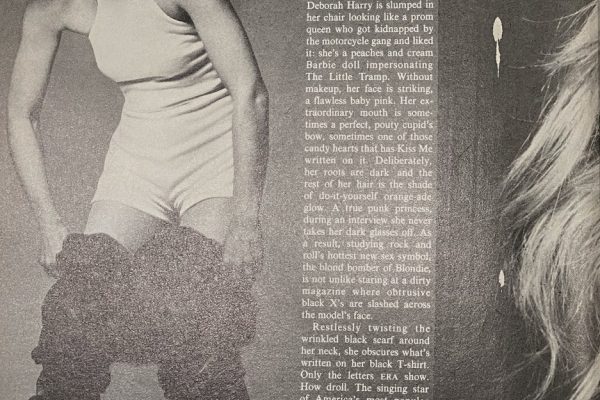Original Publication: New York Woman – October, 1987.
Forget about happiness. Obviously money can’t buy that– it can’t even buy good sex anymore, safe maybe, but not good. Living in New York, however, you naturally assume that most things can be bought– from social position to sable bed throws. Not necessarily. What has struck me lately in these materialistic times is what money can’t buy here.
We pay some of the highest taxes in the country and what do we get for it? Corruption in government and a collapse of services. I doubt that Brooke Astor, if she dares cross the street with the light, is protected from being called “asshole” or “bitch” by empty-helmeted messengers bicycling at 120 mph. Even in a thirty-five-foot stretch it may still take thirty minutes to do twelve blocks.
The reality of all this was brought home to me recently when we suffered a major apartment fire and had to find a three-month sublet fast. I had visions of waltzing into the spacious, tasteful quarters of someone splitting time between Palm Beach or Monaco. After all, the insurance company was willing to pay over $4,000 a month to put us up, a staggering amount, I thought, to blow on rent.
Let me tell you– $4,000 a month doesn’t get you ice cubes. Besides, nobody wants to rent out a furnished place for three months, especially to a family with a seventeen-month-old baby. Almost every realtor we met was a name-dropper dying to be discovered. “Sorry, I can’t meet you today, I’m going out with Oliver Stone’s producer,” or “Did I tell you, I had Oliver Stone’s set director yesterday?”
In a panic we finally settled on a floor-through with a small, vine covered terrace in a decaying townhouse on East Sixty-seventh. Shabby genteel would be an extremely polite way of putting it. My mother did warn me to forget charm for once, but what we got was usually rented to wealthy Eurotrash, conscious of address but indifferent to plumbing.
Before we moved in we had to pay three months’ rent in advance, plus one month’s rent as commission to the real estate agent, and a $1,000 security deposit, for a grand total of $17,000. Certified checks only, please.
Not only did the doorknobs fall off, the windows not latch, the dryer in the dingy basement not dry, and every faucet leak, but the carpeted bathrooms smelled like kitty litter because the floor underneath was always wet from the leaks. There was no door on the tiny freezer in the fifties mini-fridge that rested on the floor, and it was never cold enough to make ice in the tray provided.
“Please get me out of here,” my husband implored the first week, as if I could get contractors, engineers, painters, and floor men to show up at any price at our burnt-out place. Naturally I couldn’t– money does not buy returned phone calls from the building trade.
When a forty-pound piece of corroded drain-pipe from the equally decaying town house next door fell onto our terrace right where the baby had just been playing, I began to get edgy. Only the magic words “I’ll sue” motivated that building’s super to find the absentee owner. This was not the South Bronx, after all– this was Sixty-seventh between Park and Madison.
The longer I stayed there, the more I understood why our Colombian baby-sitter once asked me one day in all sincerity, “Porque la gente rica esta tan triste?” (“Why are rich people so sad?”)
I figured I’d be muy triste too if I’d paid up to 5 million for a co-op, spent in the high sixties to decorate it, and still have to listen to the fire engines wailing down the block. Did it give me any satisfaction to know my corner neighbor, Oscar de la Renta, could hear the same sirens call at 3 A.M., the same garbage trucks at 5 A.M., the same buses at 7 A.M. that I did? Definitely not. After being driven batty one night by a burglar alarm that had gone off at Crabtree & Evelyn for almost an hour, we finally called 911. “Oh yeah,” the operator said, “we already got that,” and the noise continued unabated for another hour. Where else but on Park Avenue would anyone pay a few million for the privilege of hearing such racket?
One answer to that is over on Fifth, where people spend the millions they do, I am convinced, because they are parade freaks. Every year the police commisioner issues between fifteen and twenty parade permits for Fifth Avenue, as well that upscale road race, the Fifth Avenue Mile. So if the denizens of Park can’t buy a quiet night’s sleep (we haven’t even discussed views or light), their neighbors on Fifth have no protection from brass bands, mongering hordes, and horse turds.
Don’t assume that by moving across the park you are necessarily getting more bang from your bucks. On the choicest parts of Central Park West these days you can stroll out of your apartment, flip the doorman a fin for wishing you good morning, and have absolutely no sense of the weather because you’re trapped under scaffolding, the result of years of hassling between sponsors and tenants, co-op boards, and the city. If you move downtown, you may have breathtaking river views in a grand loft for $500,000, but you can go days without seeing a tree and have to go to New Jersey for groceries.
New York’s poor, duped rich. No wonder they sob through the Porthault. They’re ensconced in palatial residences; they’re leveraged to the nines (figures); God has given them more flowered chintz than they ever dreamed existed, but can they enjoy the world’s most spectacular view from the penthouse’s sunken marble bathtub? Of course not. The electric shade in the bathroom doesn’t work.
“I’m simply never alone,” wails the chatelaine of eleven rooms on the top floor of a prestigious building on Fifth. “When I stumble out of bed, the first thing I see is some guy looking up at me with a screwdriver.” She hasn’t enjoyed a sunset in months. If she raises the electric shades, they touch off her ultrasonic security system. She lives in the dark, and it’s a total blackout: “Has anyone told you you can’t get a car phone that works in this city?”
Well, who needs a car phone anyway when you have to spend your free moments and sick days at home, hoping the phone company or Manhattan Cable will show up sometime between eight and twelve or one and five?
To set up housekeeping on any level in this city means to wait– for deliverymen, for Con Ed, for the cleaners to find your lost blazer. I dare you to try to find out when Bloomingdale’s makes its furniture deliveries, no matter how many thousands you might spend there. The average number of phone calls, not counting cutoffs, is between seven and ten per item until, in desperation, you call the head buyer of the department to get any action.
At Macy’s you have to take the whole day off if you want a room measured for carpeting since they refused to specify whether their measurer will show up in the morning or afternoon. If you try to outwit them by taking your own measurements you have to come into the store– it cannot be done by mail– and sign a waiver saying Macy’s is not responsible for the amount of carpeting ordered.
The one comfort in all this is the sense of shared camaraderie– to know everyone has his or her versions of the above. And to think I haven’t even mentioned parking or scooping the poop. (Ignorance and lack of elemental courtesy in the service sector I find too painful even to bring up.) So after a while, when you hear, “Nine weeks delay is nothing for construction in New York,” you nod vigorously, too stunned from the day’s battle to disagree.
The best revenge, I suppose, is to try to sap up one of those few city pleasures that never disappoint and are absolutely free. For me that meant taking my son to the park in the soft summer dusk and letting him climb the Alice in Wonderland statue near that boat pond. The only ones around, usually, were the oddball puppeteer, his stage attached to his waist, who would delight my son with impromptu Punch and Judy, and some big boys thrilled to be catching what they called “baby catfish.”
In the lovely quiet then, I tried to forget the daily pileup of small outrages and indignities that couldn’t be smoothed over with all the money in the world. I mean, there must be something seriously amiss, I thought, when I take my contractor’s parting words as the ultimate New York compliment. He told me he was very glad I wasn’t one of his ex-wives.
This article is typed from the original material. Please excuse any errors that have escaped final proofreading.



